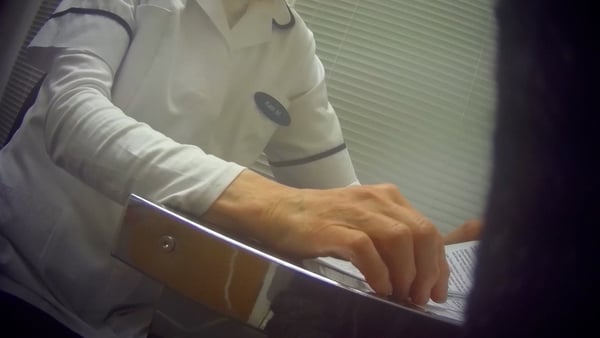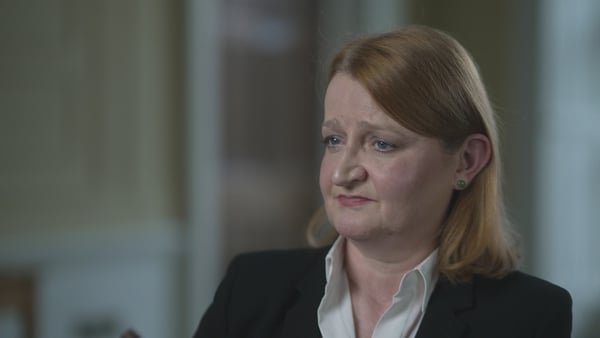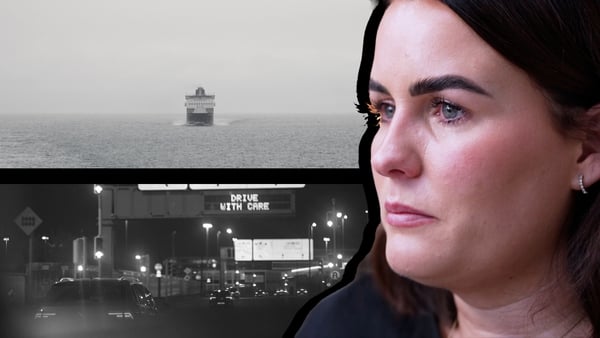The Health Service Executive (HSE) is to review the care of a man who died from sepsis late last year having been discharged from University Hospital Limerick (UHL).
76-year-old Michael Cuddihy died suddenly in November 2023, eleven months after the death of Aoife Johnston which led to a major review of management practices and care in UHL.
At the time of Mr Cuddihy's death, an internal review into the care given to Ms Johnston was on-going. Commissioned in January 2023 and provided to the Johnston family in early December 2023, it found the delays in her treatment breached national guidelines relating to sepsis.
Mr Cuddihy attended the UHL Emergency Department on 20 November 2023 but was discharged nearly 24 hours later having been told he had a stomach bug. He was found dead at home two days later. His postmortem results would later conclude he died after an infection which went untreated led to sepsis.
In response to queries from RTÉ Investigates about the care given to Mr Cuddihy, the HSE Mid West said: "We can confirm that a systems analysis review is being carried out in relation to Michael’s care in which the Cuddihy family will be invited to participate."
Prior to contact from RTÉ, the Cuddihy family understood the review of the case had ended.
The life and death of Michael Cuddihy
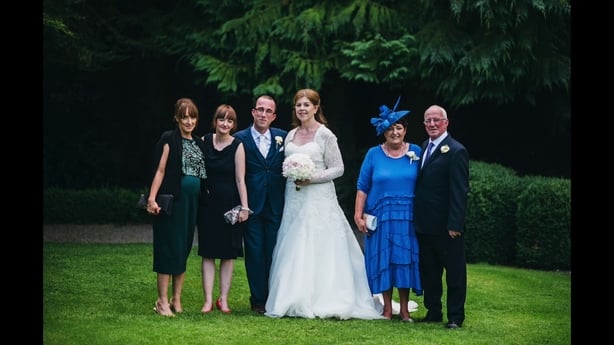
When the Cuddihy family talk about their father Michael they sometimes use the present tense – the unexpected and sudden nature of his death late last year still occasionally catches them unawares.
Around the kitchen table of eldest sibling Anne’s home, her brother and sister, Tony and Emma, openly share affectionate memories of their dad with their mother Áine.
Emma recalls being collected on his bike from school as a young child. Tony shares happy snippets of Michael’s attempts to get to grips with technology when he first got a mobile phone, while Anne remembers how her father loved nothing more than turning the engine off and freewheeling his car down country roads during their childhood summer holidays.
Michael Cuddihy was, Anne said, the most amazing daddy they could ever have hoped for. Every single memory is good, Áine added, saying she could talk about her husband forever.
But last November, out of the blue, the Cuddihy family’s world changed in the most devastating of ways.
"It beggars' belief that you’re feeling very, very sick and you go into a hospital which is supposed to be a safe place where you think you’ll be looked after and cared for, and you’re actually just sent out of there and sent home to die," Michael’s daughter Anne told RTÉ Investigates.
It was late on a Sunday evening when Michael began to feel unwell, telling his wife Áine he was tired and had a bad pain in his side. The next day, with Michael complaining the pain had worsened and was now going around to his back, Áine decided to call for an ambulance.
"Many years previous to this my dad had an aortic aneurysm and he was treated for it, but my mother was concerned that it might be happening again, so she said to my dad 'I’m going to ring an ambulance’ and he said ‘yeah do’ which was out of the ordinary because my dad was never a sick man."
At lunch time on Monday 20 November 2023 Michael Cuddihy was taken by ambulance to University Hospital Limerick. Advised the Emergency Department was very busy, Áine agreed to stay at home. That evening Michael rang with an update.
"He told her that he was doing okay, that he was on a drip for pain. He said they’ve been doing a scan and some bloods," Anne explained. "He felt he was being really well looked after at the time, and he felt they were doing everything they could to look after him."
However, within a few hours, having been told his results were clear, Michael was set to be discharged.
"My dad was told there was nothing wrong with him except a bug and that he could go home, and he said to them he didn’t feel well enough to go home, that he was feeling extremely tired. So, they agreed to let him stay until the following morning."
Hospital notes seen by RTÉ Investigates show that having asked not to be discharged from hospital, Michael Cuddihy was then moved to another section of the Emergency Department of UHL. While there overnight he was discovered vomiting by nursing staff. The notes also record that he had a raised temperature, but it appears there was no medical follow up.
In fact, during this time, Michael lay on a trolley for 18 hours without being assessed by a doctor.
"When they realised that my dad’s heart wasn’t the issue, instead of checking to see what might be the issue, they essentially dismissed him and that was the end of my dad seeing a doctor," Anne said.
The next morning on Tuesday 21 November 2023, having been discharged, Áine went to collect Michael. Unable to walk, he was taken by wheelchair to the front door of the hospital. He told Áine he was exhausted and hated having such a bad bug.
"To think that they sent him out in a wheelchair – I mean do you really send a person with an ordinary stomach bug or somebody who’s not sick out in a wheelchair?" Anne questioned.
At home Michael went straight to bed where for the next two days he went between sleeping and getting sick. Worried about his condition, Áine checked on him at regular intervals.
"She noticed that his foot was outside the duvet, and she told him his foot would get cold," Anne explained getting emotional. "She touched his foot, and she realised it was ice cold. And then she checked my dad and she realised he was gone.
"It just doesn’t make any sense because we were told he had a stomach bug."
Michael Cuddihy died on the 23 November 2023. His postmortem results revealed there was a gallstone trapped in his common bile duct, causing an infection which when untreated led to sepsis resulting in his untimely death.
Finding her beloved husband dead is, Anne said, something which her mother Áine will never forget.
"She couldn’t do this interview because she would be a total basket case. She is totally and utterly devastated. When I say they were soulmates, I mean they were the epitome of soulmates. She has said to me that she feels like her own life is over."
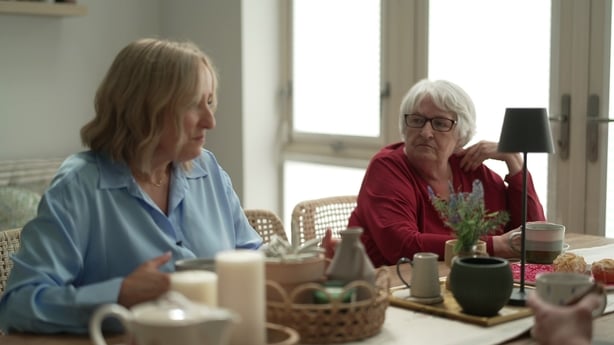
Having received the postmortem results, the Cuddihy family requested a meeting with senior management at University Hospital Limerick. The meeting was arranged for January this year.
"Straight away the consultant said I would like to offer my condolences and apologise, and he held his hands up and he said, ‘we got it wrong’. To say we were floored is an understatement," Anne said.
"They told us a lot of mistakes were made and they told us what the mistakes were, and it was an endless list of mistakes."
Minutes from two meetings held with the Cuddihy family seen by RTÉ Investigates reveal a catalogue of stark findings, with senior medical staff at UHL acknowledging Michael shouldn’t have been sent home, saying there had been too much focus on an aneurysm and it had provided a false sense of security when none was found.
The documents go on to state Michael’s blood tests were incomplete and should have been redone, his white cell count had increased suggesting infection, and his temperature went up, but neither this nor his deterioration overnight was acted on.
In all, University Hospital Limerick admitted there were several opportunities where things could have been done differently in Michael’s care concluding that "if we could rewind the clock, it would be different".
"If he had been given IV antibiotics when he arrived at the hospital, I wouldn’t be sitting here talking to you. It’s horrific," Anne said. "And what’s insane is that all the markers for infection were there."
The meeting minutes also state that by reviewing Michael’s case, UHL wanted to take learnings from it to ensure a similar case did not happen in future. Although grieving the loss of their husband and father, the promise provided the Cuddihys with a sense of reassurance.
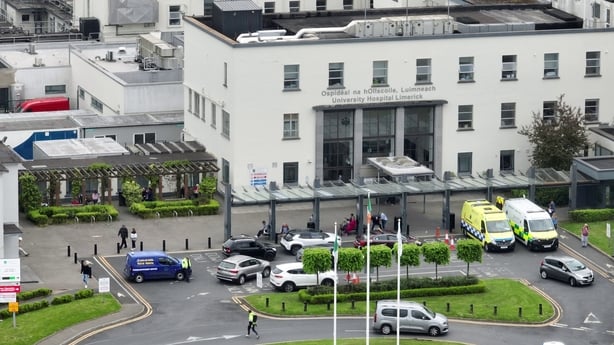
But that confidence started to fade when in April this year news reports began to emerge from the inquest of Aoife Johnston. Learning of the circumstances of her death at UHL on 19 December 2022 horrified the Cuddihy family.
"Poor Aoife died in December 2022 and my dad died in November 2023. My dad died from sepsis too and I just don’t understand how after the death of a 16-year-old girl, they cannot go all out to ensure that this doesn’t happen to somebody else, whatever age they are. They clearly didn’t learn from that," Anne said.
Returning the verdict at Aoife Johnston’s inquest earlier this year, the coroner spoke of systemic failures, missed opportunities and communication breakdowns throughout her time in the Emergency Department. The coroner also issued several recommendations, including one relating to the future management of suspected sepsis patients, as well as expressing concern at persistent overcrowding problems at the hospital.
Just short of a year after Aoife’s death, the Cuddihys feel their father experienced many of the same failures at UHL with senior staff from the hospital admitting there was a shortfall of about 20 nurses when Michael was a patient there.
"I fully, vehemently believe that my dad’s death is related to overcrowding in UHL. I think that it is impacting the work that the doctors and nurses can do in there. I don’t think they can give their full time to the patients that they’re meant to be looking after," Anne told RTÉ.
"People are dying unnecessarily because the whole thing is a shambles – it’s an absolute shambles."
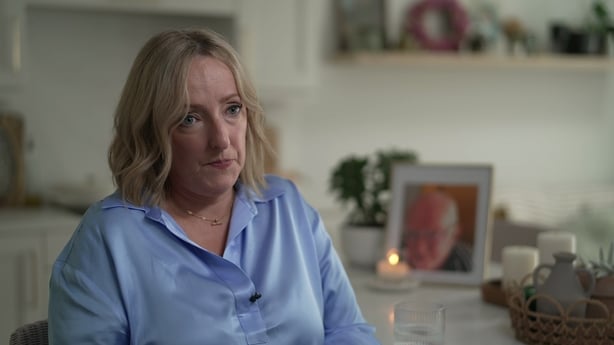
But the Cuddihy family were in for another shock. Just earlier this month they again turned on the news to discover the Health Information and Quality Authority (HIQA) had conducted an unannounced inspection of the University Hospital Limerick Emergency Department, during which the health watchdog found risks of harm to patients were not being fully managed.
The date of the inspection? It was conducted on 21 November 2023 – the very day Michael was discharged from UHL.
The subsequent HIQA report noted the hospital still had significant improvements to make, stating there was unacceptable overcrowding and that an Emergency Medicine Early Warning System for recognising and responding to deteriorating patients, had not been implemented at the time.
It did however find some advances from previous inspections including a "considerable improvement in the staffing complement for all disciplines," including nurses. The finding took the Cuddihys by surprise.
"That really baffles me about the report about staff levels having improved because we were told by people in UHL when we met them that they were down 20 nurses when my dad was in hospital. That does not make sense to me whatsoever," Anne told RTÉ.
Expressing its deepest condolences to Michael Cuddihy’s family on their unimaginable loss, the HSE Mid West Health Region told RTÉ there are no words it can express to console them at this time.
It confirmed there were nursing shortages during Michael’s time at the hospital but suggested the number was not as low as had been indicated to the family.
It added recommendations from a preliminary assessment of the care he received have been implemented in full, adding it absolutely recognises the increased risk to patient safety arising from chronic overcrowding at UHL’s emergency department and it is working to address this.
The HSE also confirmed it will now conduct a full review of Michael’s case in which the Cuddihy family will be invited to participate.
"Each case is looked at in its own right and two cases are rarely the same. Not every tragic outcome will have the same attributes and the incident management framework allows us to provide some answers to patients and families and to improve our services," a HSE Mid West spokesperson said.
Earlier this year the Cuddihys were told at their meeting with UHL that such a review was not necessary "as all the deficits were identified in the preliminary assessment" and another investigation would not garner any further information.
However, following contact from RTÉ Investigates the family were contacted this week to say a full review would now take place.
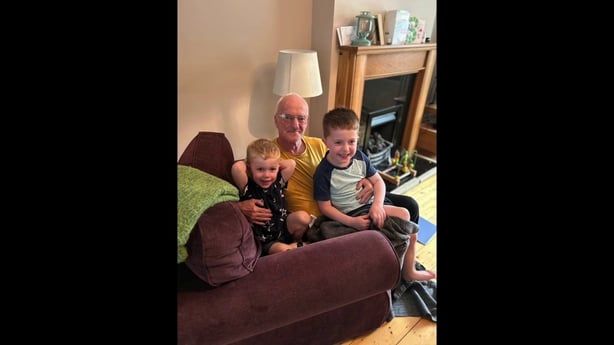
Just a fortnight ago, the Minister for Health Stephen Donnelly ordered a review into emergency care capacity in the mid-west region to determine if a second department is required. However, another costly review with no clear timeframe is, Anne Cuddihy believes, simply another way of kicking the can down the road.
"I don’t understand why this review is needed. Are the signs not there? Has he not seen that real people are dying. This is not about numbers and statistic anymore. This is about me, and my family having lost an incredibly special person in our lives. This is about Aoife Johnston’s family having lost their beloved daughter. It cannot keep happening."
In a statement, Minister Donnelly also expressed his sincere condolences to the Cuddihy family, saying it is understandable that patients and their families attending UHL have concerns about the level of overcrowding and the impact this might have on care.
It added improving services at the hospital is a key priority for the Department of Health with several actions announced including increased staff and beds, plans for additional step-down facilities and the appointment of a support team to address pressures on health services in the mid-west region.
Michael Cuddihy’s grandchildren affectionately knew him as "Gang Gang" or "Go Go". His extended family were the centre of his world, and they equally idolised him. Knowing that his life could have been saved is, Anne says, something her family will never come to terms with.
"Every time something like this happens families always ask for it not to happen to any other family and it’s what we all want. We don’t want it to happen to any other family, and yet it does. Well, can this be it now? Change needs to happen, and it needs to happen now."
Aoife Hegarty and Doireann O'Hara's report 'RTÉ Investigates: State of Emergency' will broadcast on the 23 May edition of Prime Time on RTÉ One and RTÉ Player.


